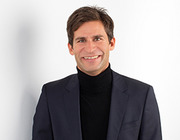Cohesion and a sense of “European Unity” were the core topics at the event. Liz Mohn, Deputy Chair of Bertelsmann Stiftung, emphasized in her welcome address that, in this digital age, personal and face-to-face discussions were still the best way to build friendships, learn mutual understanding and develop a feeling of cohesion. She also said that personal discussions were essential to the creation of a common understanding and awareness of our European values – tolerance, liberty and solidarity.
Conflicts at the EU’s external borders, migration flows and the current Corona virus crisis are proof that complex issues cannot be stopped at national frontiers. According to German Foreign Minister Heiko Maas, we need not less, but more cooperation within the EU. The EU will only increase its ability to act by ceasing to pursue a policy of seeking the lowest common denominator. In a globalized world we must stand up for our values and present a united front towards Russia, Turkey and Iran.
In a European Workshop held prior to the conference, 75 citizens from Poland, France and Germany developed concrete recommendations for a strong, sovereign, united Europe. They then discussed their proposals with the German Foreign Minister and his Bulgarian counterpart Ekaterina Zaharieva.








![[Translate to English:] Menschen diskutieren beim Bürgerdialog](/fileadmin/files/_processed_/b/e/csm_1045556754Europawerkstatt-9302_1069ead8ad.jpg)


